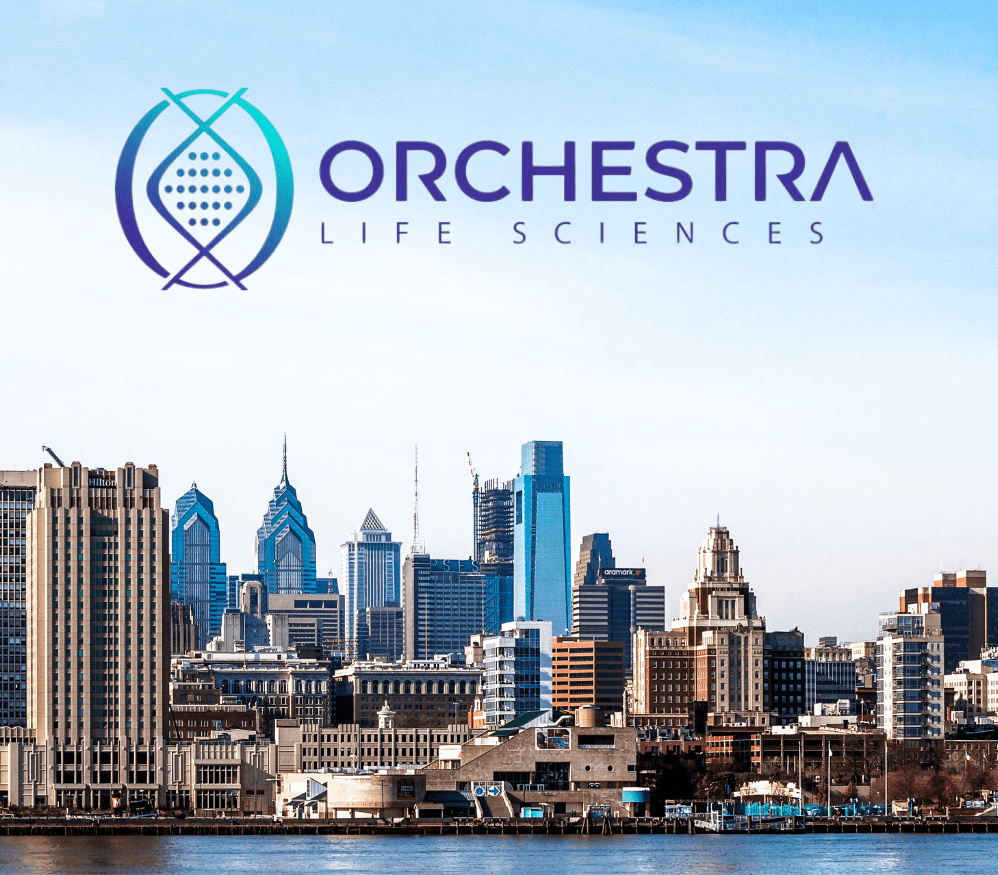When Orchestra Life Sciences announced the relocation of its headquarters to the Philadelphia Navy Yard, it struck a resonant chord that echoes far beyond the region. The move from Montreal to Philadelphia is not just a real estate headline—it’s a signal of confidence in the region’s accelerating momentum in advanced therapies, workforce development, and biomanufacturing infrastructure.
Co-founder and CEO Emilie Pelletier, a former Iovance executive with deep Philadelphia ties, commented on the move – “Relocating our headquarters to Philadelphia reflects both our growth as a company and our
commitment to being part of this extraordinary ecosystem.” Her return to the Navy Yard—a place she knows from her years in cell therapy manufacturing—represents both a personal and professional homecoming. Alongside co-founder Sumit Verma, whose career spans Iovance and Merck, Orchestra’s leadership brings a sophisticated understanding of the operational and regulatory complexity behind the therapies shaping the next generation of medicine.
Philadelphia’s Growing Role in the Advanced Therapy Corridor
Orchestra’s arrival underscores what many in the industry have sensed for years: Philadelphia’s rise as a national nexus for cell and gene therapy is accelerating. The region is often referred to as “Cellicon Valley,” given its concentration of cell and gene therapy R&D, manufacturing, and talent. From the Navy Yard’s growing ecosystem of manufacturing and R&D tenants to University City’s cluster of academic and translational research anchors, the region has become an essential link between Boston, New York, and the Mid-Atlantic biotech corridors.
Several organizations with major presence in or around Philadelphia underscore this strength. Minaris Advanced Therapies, a global CDMO focused exclusively on cell and gene therapies, continues to expand its operations and partnerships in the region. Kymanox, a consulting and engineering firm that supports biologics and advanced therapy manufacturing, has strengthened its Philadelphia footprint to meet growing client demand. Qiagen provides critical tools and analytics for cell and gene therapy manufacturing and quality control, helping companies scale safely and efficiently.
On the therapeutic side, the Greater Philadelphia region is home to well over 60 cell and gene therapy developers, including Cabaletta Bio, Carisma Therapeutics, Passage Bio, and BlueWhale Bio. Together, these organizations make Philadelphia a central player in what many now call the “CAR-T Corridor,” a biopharma super-region spanning from Philadelphia through Maryland that’s shaping the future of cell therapy manufacturing and commercialization.
What the Orchestra move reinforces is that success in advanced therapies requires more than scientific novelty—it demands a full ecosystem: talent, operations, manufacturing, regulatory support, and proximity to major hubs. Philadelphia offers all of that, and companies are clearly taking notice.
Commitment to U.S. Growth and Resilience
Orchestra’s move fits into a larger national story. Across the biopharma landscape, companies are recommitting to growth and job creation in the United States. From emerging consultancies like Orchestra to global leaders such as GSK, the post-pandemic years have brought a wave of investment in U.S.-based manufacturing, workforce training, and supply chain fortification.
GSK recently announced plans to invest up to $30 billion in the U.S. over five years, including a significant expansion in Pennsylvania that could create hundreds of high-value jobs. Its $800 million investment in the Marietta site aims to double vaccine manufacturing capacity and strengthen local supply resilience. The PM Group, another firm specializing in capital project consulting, has also expanded in Philadelphia—evidence of the continued build-out of the infrastructure required to support these high-growth biotech operations.
Taken together, these moves affirm both Pennsylvania’s and the nation’s attractiveness for advanced manufacturing and workforce development. Orchestra’s relocation to Philadelphia aligns directly with this broader trend: companies are recognizing that advanced therapies require resilient, on-shore ecosystems, not just innovation hubs. Cities like Philadelphia, with both heritage and forward momentum in cell and gene therapy, are becoming strategic “bet-the-company” locations.
From Talent Gap to Talent Engine
Perhaps the most forward-looking aspect of Orchestra’s relocation is its plan to establish a Workforce Development Center of Excellence at the Navy Yard. The center is intended to train and certify the next generation of quality assurance and quality control specialists for advanced therapies and radiopharmaceutical manufacturing—fields where the talent gap remains one of the biggest barriers to scale. The creation of hands-on training, online programs, and equipment-driven certification models shows a proactive approach to not just sourcing talent, but growing it.
Pelletier, commented that, “the Navy Yard provides not only world-class infrastructure, but also the community and
vision to build the workforce needed for the future of advanced therapies.”
In Philadelphia, this initiative dovetails with existing workforce programs at the Navy Yard and the city’s life sciences talent strategies, such as those led by the Philadelphia Industrial Development Corp. and the Skills Initiative. If successful, it could help transform the region from a place of talent demand to a hub of talent creation.
With Advanced Therapies Week on the horizon, Orchestra’s announcement couldn’t be better timed. The relocation captures a broader story of convergence: capital investment, talent strategy, and manufacturing readiness all aligning around Philadelphia’s expanding biotech ecosystem. It is not just one company making a move—it’s part of a larger re-orchestration of the life sciences landscape, where proximity to innovation, workforce, and purpose drives long-term growth.
Orchestra Life Sciences’ decision to anchor in Philadelphia reinforces what insiders already know: the city’s life sciences crescendo is building, and the Navy Yard is becoming one of the East Coast’s most dynamic stages for innovation, collaboration, and talent development. With co-founders who both trace roots back to Iovance, a company that helped shape Philadelphia’s cell therapy ecosystem, Orchestra’s move is more than geographic—it’s strategic.
Like this:
Like Loading…
Related

